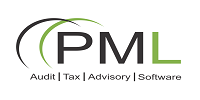For the many individuals who have ever thought about starting their own business, chances are there was one thing that stopped them: the risks.
Many people think about starting their own business only to be turned off by the projected risk, time ... Read More
Everyone wants an easier and faster way of doing things for business tasks such as raising invoices, managing inventories and tracking expenses and banking reconciliation does not have to be tedious anymore.
Here are a few reasons why business management solutions ... Read More
Why Excel isn’t a long term solution
Excel can do a large number of tasks, is easily available and is very widely used in the world of business. And it would be wrong not to not acknowledge this up front. However, ... Read More
Ensuring respect for risk
Most executives understand the need for controls that alert them to trends and behaviors they should monitor, the better to mobilize in response to an evolving risk situation. And while managers are unlikely to approve of skirting the ... Read More
Why Your Business Needs An Accounting Software
Research has shown that over 98 percent of Nigeria’s Micro and small scale businesses do not have formal or what we may call a standard book-keeping culture. While most of ... Read More
Businesses face a myriad of challenges that leave them vulnerable to many forms of risk, including regulatory, reputational and litigation, among others.
Evolving legal and ethical obligations pose constant challenges to a business and often in-house counsel are on the front ... Read More
IFRS Immersion Course For Accountants, Auditors & Finance Personnel
This 3-Day IFRS immersion training has been designed to teach in-depth knowledge about IFRS with practical application examples.The training sessions will be led by subject-matter professionals with deep IFRS and Nigeria Statement of Accounting Standards experience.
Attendance at this programme will provide the participants opportunity to discuss practical issues on application of IFRS and to ensure effective compliance with IFRS.
Certificates will be awarded to all ... Read More
Indian based accounting solution company, E-trends Technologies India has signed a partnership deal with PML advisory limited to provide solution to the mounting challenges of managing , controlling and reporting internal audit system that are confronting emerging and ... Read More
A financial plan is a forecast of future performance for a business, usually prepared using spreadsheet software. Small businesses can benefit greatly from taking the time to do a financial plan at least annually. The plan helps a small ... Read More
An important in the internal auditor's toolbox, risk-based auditing effectively serves the three primary roles of internal auditing — to provide feedback on the adequacy of internal control, to provide a source of information for monitoring risk, and to provide identification and communication ... Read More


